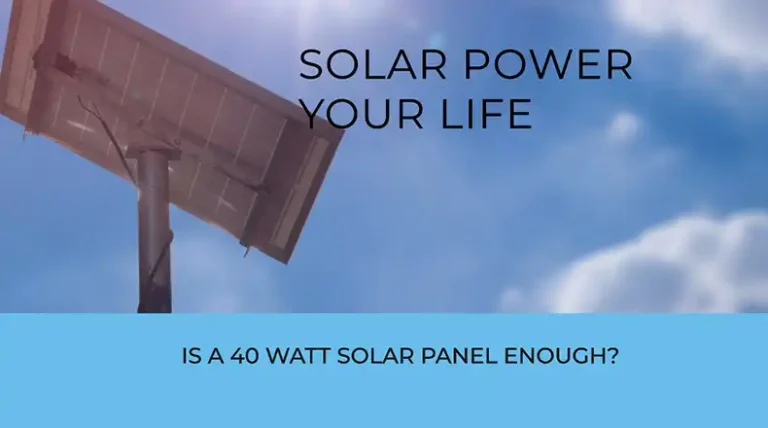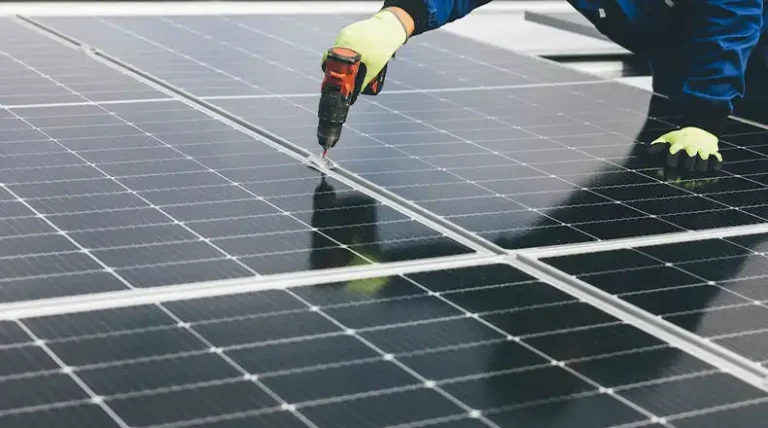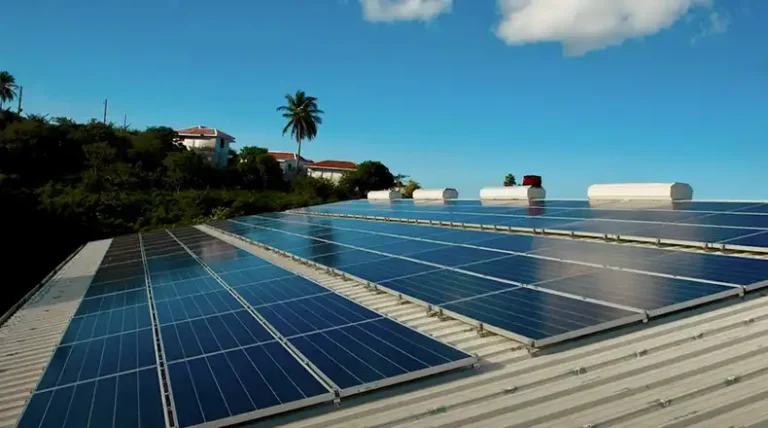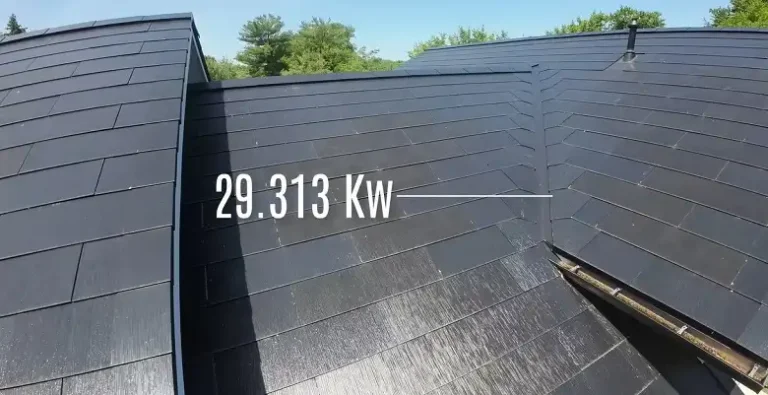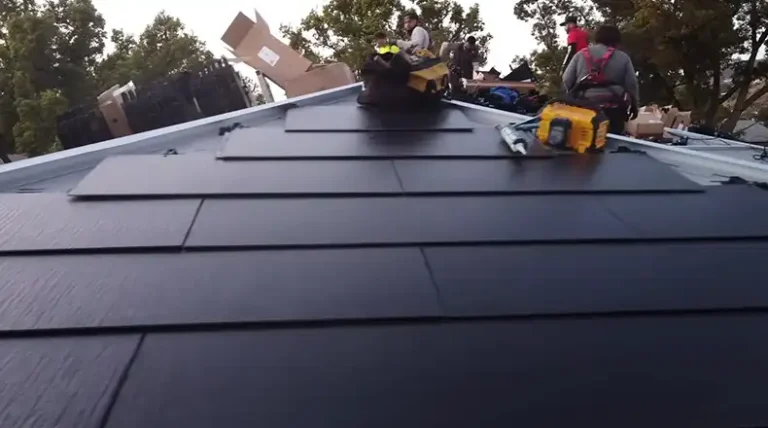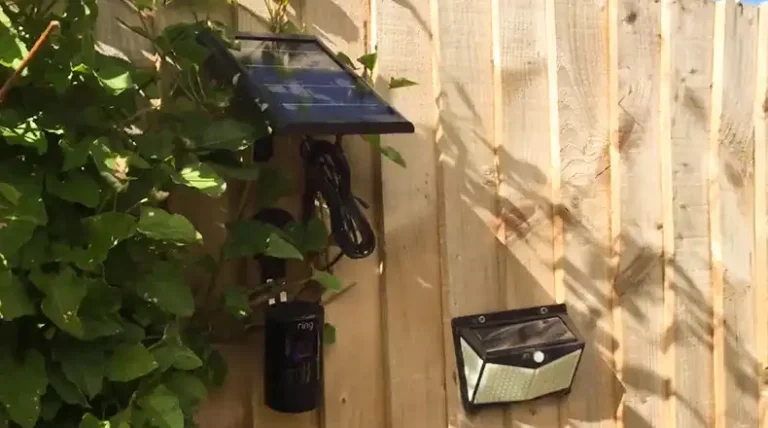What Happens if A Solar Panel Is Not Connected to Anything | What to Do
Solar panels, those sleek and sun-soaking energy generators that have become a symbol of eco-consciousness, are incredibly useful devices. However, you might be wondering, what happens if a solar panel is not connected to anything?
Can it just bask in the sun’s glory without being plugged into your home’s power grid or some battery storage system? Well, my friend, you have come across a fascinating but often overlooked aspect of solar energy. In this article, we will explore this topic in depth. So, let’s begin.
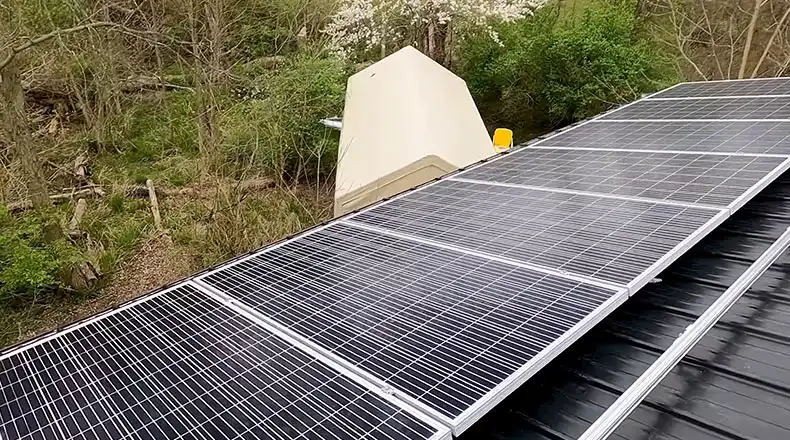
Will It Be Ideal to Leave the Solar Panel Disconnected from Everything?
So, you’ve got this solar panel, and for some reason, it’s not connected to anything. Is that a good idea? The short answer is, not really. Solar panels are like over-enthusiastic employees – they work best when they have a job to do. Leaving them disconnected from everything for extended periods isn’t ideal for several reasons.
Firstly, when a solar panel isn’t connected, it’s just sitting there, underutilized, wasting the potential energy it could be generating. It’s like having a gourmet chef and making them watch cooking shows instead of preparing your meals – a missed opportunity.
Secondly, solar panels are designed to work efficiently and safely when they’re connected to a load. They maintain a certain voltage and current flow, and when they’re not connected, that balance can be upset, potentially leading to issues like overheating or damage to the panel itself.
And finally, solar panels are built to last, but they still have a finite lifespan. Leaving them idle can age them prematurely. So, it’s like keeping your vintage car in the garage, hoping it will appreciate in value, but it’s just gathering dust and rust.
What Will Happen If You Leave the Panel Disconnected from Everything?
If you’ve left your solar panel disconnected, you might be curious about what could go wrong. Well, a few things can happen:
- Loss of Efficiency: Solar panels are most efficient when they’re actively producing electricity. When left unconnected, their efficiency decreases, and you’re not getting the most bang for your buck.
- Potential Damage: Solar panels can be sensitive creatures. When disconnected, they can experience issues like hotspots, which can lead to permanent damage. This is like sending your smartphone to a sauna – not a good idea.
- Reduced Lifespan: Solar panels have a limited lifespan, which is significantly affected by the number of charge and discharge cycles they go through. When disconnected, they’re not contributing to these cycles, potentially shortening their lifespan.
- Inefficient Energy Use: If you’ve got excess energy production, your solar panel is designed to feed that energy into your home or storage system. When disconnected, that energy is wasted, akin to buying groceries and letting them rot in your fridge.
- Voltage spikes: When the solar panel is generating electricity but has no load to power, the voltage can spike. This can damage electronic devices that are connected to the solar panel system.
- Hot spots: Hot spots are areas on the solar panel that are hotter than the rest of the panel. Hot spots can be caused by a variety of factors, including shading, dirt, and debris. If a hot spot is not addressed, it can cause the solar panel to fail.
What Should Be Done to Avoid Any Issue After Disconnecting the Solar Panel from Everything?
To avoid any issue after disconnecting a solar panel from everything, you should do the following:
- Use a disconnect switch. A disconnect switch is a safety device that allows you to isolate the solar panel from the rest of the system. This is the safest way to turn off a solar panel.
- Cover the electrical connectors. Once the solar panel is disconnected, it is important to cover the electrical connectors with electrical tape or another non-conductive material. This will prevent any accidental contact with the live electrical wires.
- Store the solar panel in a safe place. If you are not going to be using the solar panel for a while, it is important to store it in a safe place. This means storing it in a cool, dry place away from direct sunlight.
Here are some additional tips to avoid any issues after disconnecting a solar panel from everything:
- Make sure that the solar panel is not in direct sunlight when you are disconnecting it. This will help to prevent the solar panel from overheating.
- Be careful not to touch the electrical wires on the solar panel. Touching the electrical wires can result in an electrical shock.
- When reconnecting the solar panel, make sure that the disconnect switch is in the “off” position before connecting the wires. This will help to prevent any accidental electrical shocks.
- Once the solar panel is connected, flip the disconnect switch to the “on” position.
If you are unsure about how to safely disconnect or reconnect a solar panel, it is always best to consult a qualified solar installer.
Final Thoughts
In a nutshell, while it’s not ideal to leave your solar panel disconnected from everything, it’s also not a disaster waiting to happen. Solar panels are tough cookies, but they perform best when they have a purpose. If you need to turn them off temporarily, do it safely and under professional guidance.
Remember, your solar panel is a valuable asset, and treating it right will ensure it serves you well for years to come. So, connect it, use it, and enjoy the renewable energy benefits it offers. If you have any more questions or concerns about solar panels, feel free to drop them in the comments below. We’re here to shed some light on your solar queries! Thanks for reading, and may your days be sunny and bright.

